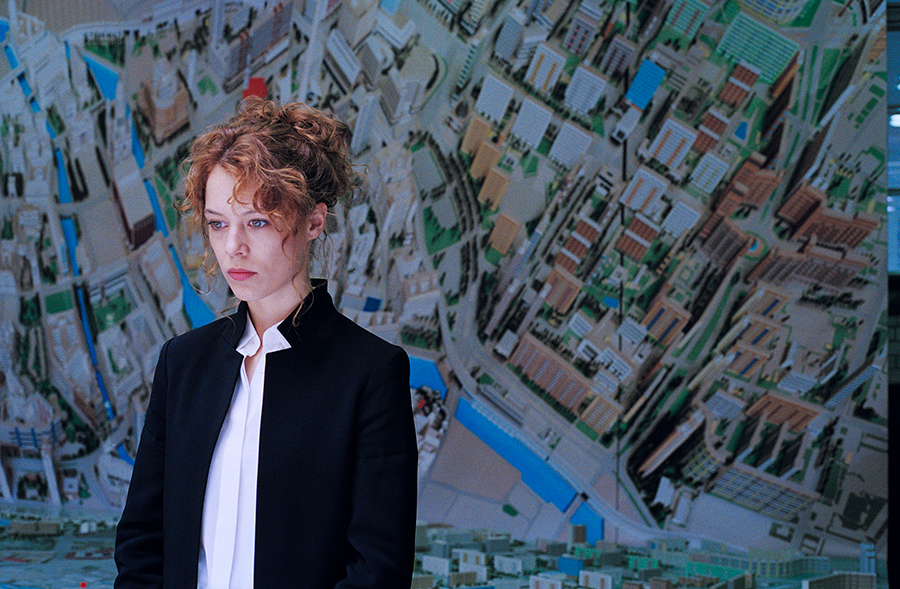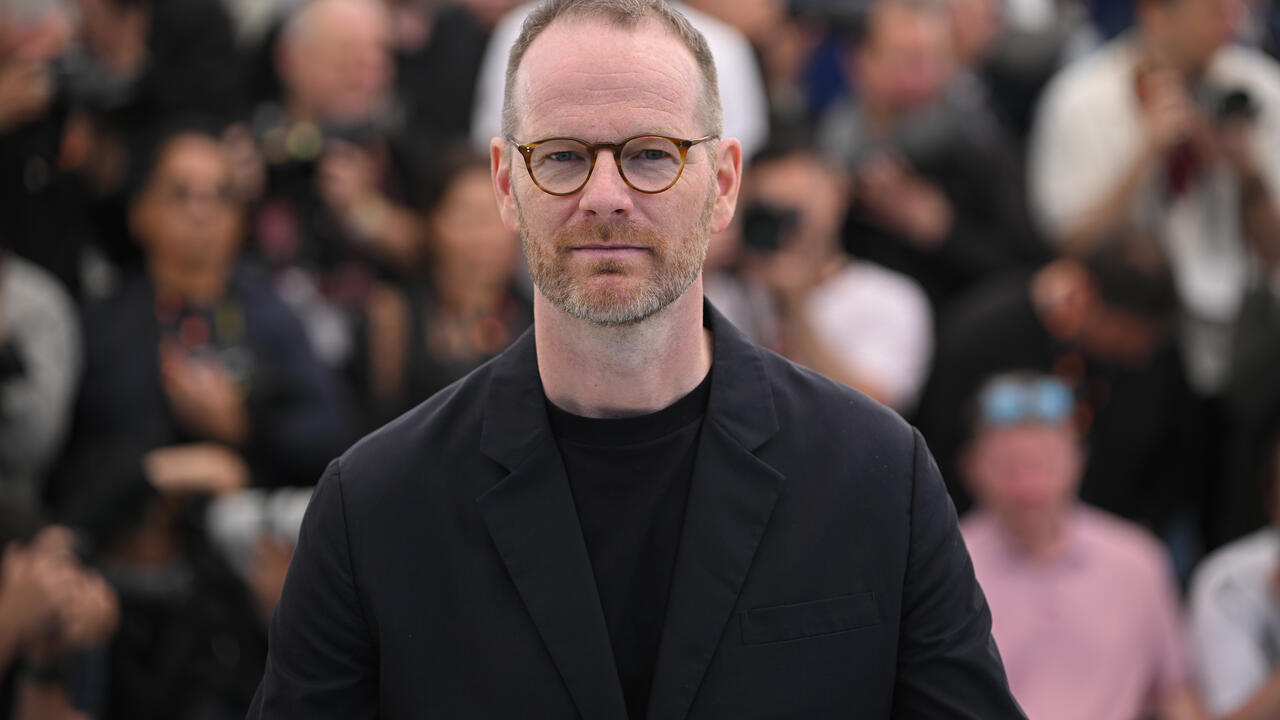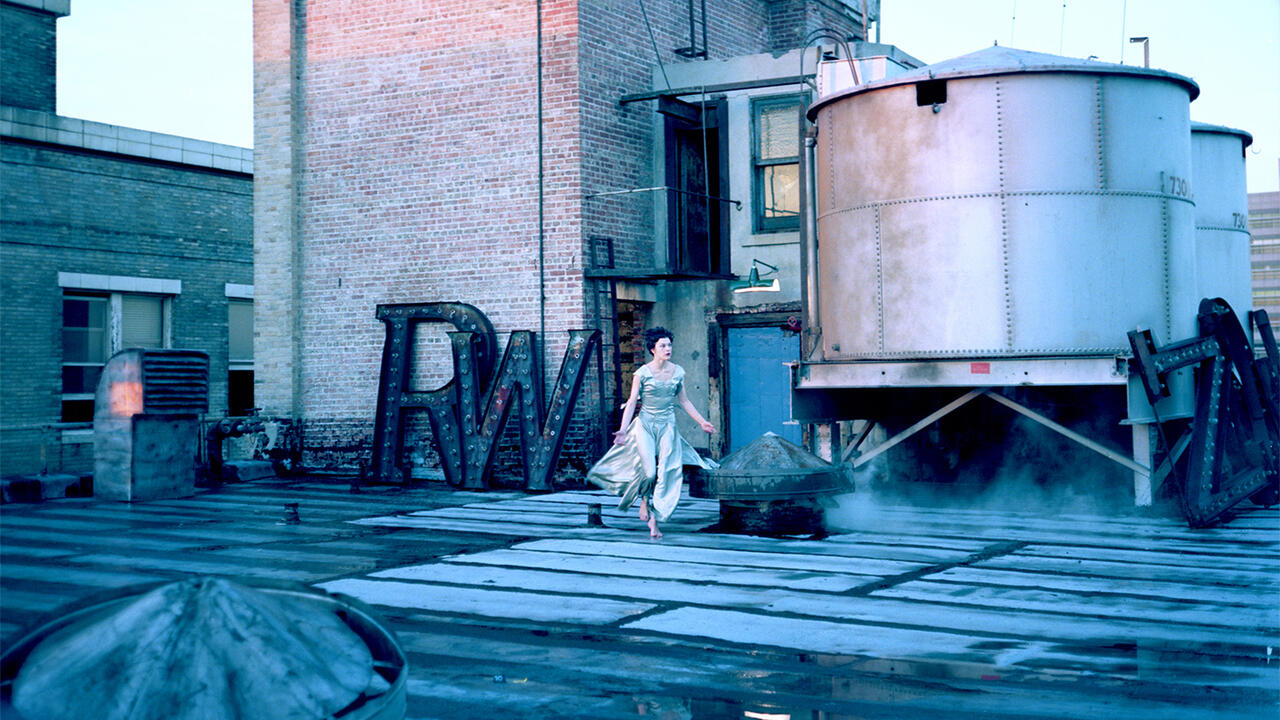This Year’s Berlinale Film Festival: Aquatic Nymphs, Health Quarantines and Nigerian Neorealism
The most urgent works at this year’s 70th Berlinale Film Festival are about coming to terms with culture’s inherited mythologies
The most urgent works at this year’s 70th Berlinale Film Festival are about coming to terms with culture’s inherited mythologies

‘You said, “we have to meet.”’ ‘No, I said “we have to see each other.”’ Christian Petzold’s razor-sharp new feature Undine (2020) opens with a painfully relevant, pithy argument about the exact wording of a voicemail. How much urgency was in that voicemail? Undine, the film’s eponymous main character (Paula Beer) sits with her overconfident, about-to-be ex-boyfriend Johannes (Jacob Matschenz), begging him not to break up with her. The wind whips loudly across the outdoor café filling the awkward silences. ‘If you leave me,’ says Undine, ‘I’ll have to kill you.'
Is Petzold’s Undine human? She endures the same burdensome routines that most of us do, reporting to work at a German civic planning bureau where she gives long, memorized lecture tours of model architecture of past and present Berlin. But Undine also moves between realms. Like her mythical namesake, she is of the water. Ultimately, her main lover in the film, a shy industrial diver named Christoph played by Franz Rogowski, is left to sort through the problem of Undine for himself, wrestling with his own fantasy, desire and the reality of his beautifully-shot underwater workplace.

Whether breaking up with past identities, reconsidering fairy tales’ relationship to trauma and memory, or making sense of post-colonial selfhood, many of the most urgent works screening at this year’s Berlinale Film Festival are about coming to terms with myth. How do we 21st-century humans sort through inherited cultural myths? How do we manage our unrelenting tendency towards mythologizing?
Take Stéphanie Chuat and Véronique Reymond’s second feature Schwesterlein (My Little Sister) (2020), another piercing film from the Competition section. A chilling quarantined hospital room sets the scene for this contemporary Hansel and Gretel-like story of characters trying to define home. Sven (Lars Eidenger) is dying of cancer, and a blood transfusion from his twin (albeit younger by two minutes) sister Lisa (Nina Hoss) is one of his final hopes.
The backdrop for the film says it all: on one end, a Europe pressurized by Heidi-like seclusion in a stiflingly bourgeois town in the Swiss alps; on the other, an antidotal Berlin, characterized in part by an ineffective mother whose obsession with Brechtian theatre and afternoon aperitifs renders her unable to be in the present. Questions of home in Schwesterlein (My Little Sister) reach even deeper: what do we do with our bodies when cancer is so commonplace; how do we live with and carry disease? As Lisa, Hoss brilliantly navigates us through lies we tell ourselves, her brother’s illness, spousal tensions and a Europe uncertain of its future.

Another outstanding story of interwoven tales appears in this year’s Forum section with Nigerian directors Ari and Chuko Esiri’s Eyimofe (This is My Desire, 2020). Their debut is a tight, quiet portrait charting the story of Mofe (Jude Akuwudike) and Rosa (Temi Ami-williams). Divided into two distinct sections named after European countries – Italy, Spain – the film gets framed by two places the characters never visit. Impossible pitfalls of both character’s impoverished working-class status imperil them. But Ari and Chuko’s subtle neorealism has a compelling nuance, speaking both to the complexity of its characters’ aspirations, and to something larger: perhaps the inevitable state in which capitalism has left us all – everything bought, sold and controlled by a wealthy few.
Many of the festival’s most enticing works traffic in this thematic terrain, helping to realize some of this Berlinale’s many aspirations. One: ‘looking for new entry points into the world’, as a Forum Expanded interview states. Two: seeking to redefine gender equality, as per a 50/50 gender pledge signed by the festival and market directors last year. If we are to confront our own global political history and current planetary state, the urgency of films like these might aid us.
Main Image: Christian Petzold, Undine, 2020, film still. Courtesy: the artist; © Marco Krüger/Schramm Film





















